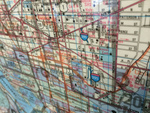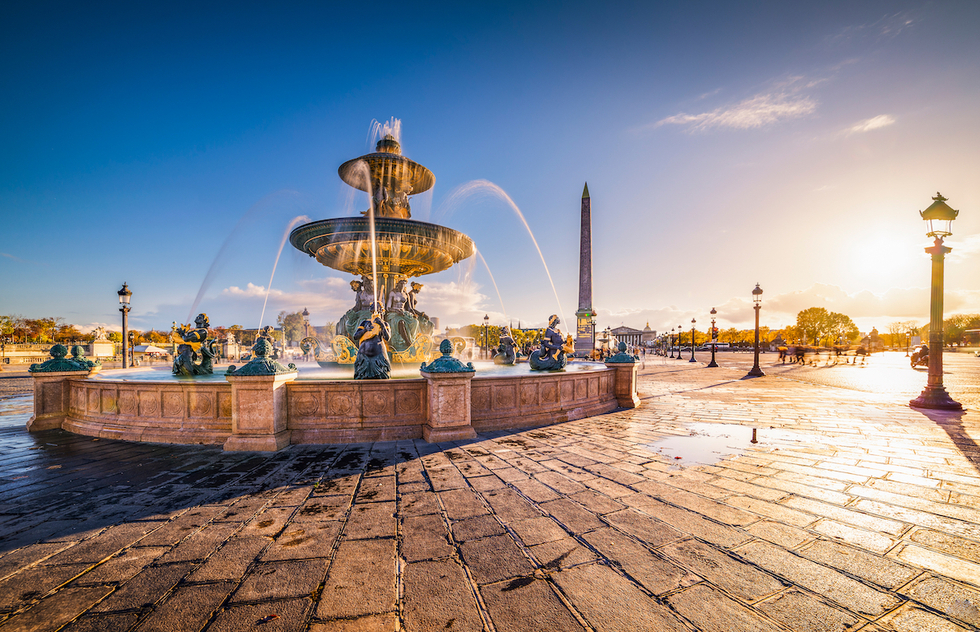Like an exclamation point at the end of the Champs-Élysées, the Place de la Concorde is a magnificent arrangement of fountains and statues, held together in the center by a 3,000-year-old Egyptian obelisk (a gift to France from Egypt in 1829). When it was inaugurated in 1763 during the reign of Louis XV, this vast plaza was on the outer edges of the city; today, though part of an urban landscape, it still gives the impression of open space. If it weren’t for the cars hurtling around the obelisk like racers in the Grand Prix, this would be a delightful spot for a breath of fresh air (if you feel compelled to cross to the obelisk and you value your life, find the stoplight and cross there).
It’s hard to believe that this magnificent square was once bathed in blood, but during the Revolution, it was a grisly stage for public executions: King Louis XVI and his wife, Marie Antoinette, both bowed down to the guillotine here, as did many prominent figures of the Revolution, including Danton, Camille Desmoulins, and Robespierre. Once the monarchy was back in place, the plaza hosted less lethal public events like festivals and trade expositions. In 1835 the place was given its current look: Two immense fountains, copies of those in St-Peter’s Square in Rome, play on either side of the obelisk; 18 sumptuous columns decorated with shells, mermaids, sea horses, and other sea creatures each hold two lamps; and eight statues representing the country’s largest cities survey the scene from the edges of the action. On the west side are the famous Marly Horses, actually copies of the originals, which were suffering from erosion and have since been restored and housed in the Louvre. On the north side of the square are two palatial buildings that date from the square’s 18th-century origins: On the east side is the Hôtel de la Marine, and on the west side is the Hôtel Crillon, where on February 6, 1778, a treaty was signed by Louis XVI and Benjamin Franklin, among others, wherein France officially recognized the United States as an independent country and became its ally.







 About our rating system
About our rating system

1adb.jpg)
